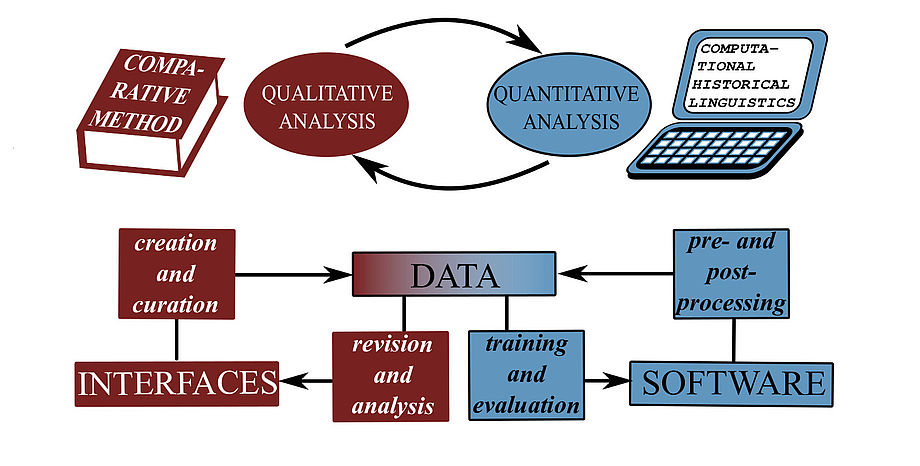CALC

The goal of computer-assisted language comparison is to decrease the strict division into classical -- mostly manual (also "qualitative") -- and computational -- often still experimental -- approaches to historical and typological language comparison. Our goal is to establish a new framework that allows scholars to combine manual and computational approaches in their work.
While the need for computer-assisted approaches in comparative linguistics has been evident for a long time, a systematic investigation of computer-assisted approaches has only been started in the last ten years.
First advances in the area were made in the context of research project "Computer-Assisted Language Comparison" (CALC), funded by the European Research Council in the form of a Starting Grant (2017-2022), which was led by chair holder Prof. Johann-Mattis List at the Max Planck Institute for Evolutionary Anthropology in Leipzig. Thanks to a special grant by the Max Planck Society, the CALC project has been prolonged by two more years (2022-2024).
The Chair of Multilingual Computational Linguistics continues the work on computer-assisted language comparison. In the future, however, we want to try to focus not only on historical language comparison, but also test the potential of computer-assisted approaches for typological language comparison.
| Principal Investigator(s) at the University | Prof. Dr. Johann-Mattis List (Lehrstuhl für Multilinguale Computerlinguistik) |
|---|---|
| Project period | 01.04.2022 - 31.03.2024 |
| Website | https://calc.digling.org/ |
| Funding notice | The CALC³ project follows the earlier ERC-Project CALC (2017-2022) and is funded by the Max Planck Society. The project extends the work on Computer-Assisted Language Comparison by targeting three specific focus areas, namely human prehistory, linguistic typology, and human cognition. |

